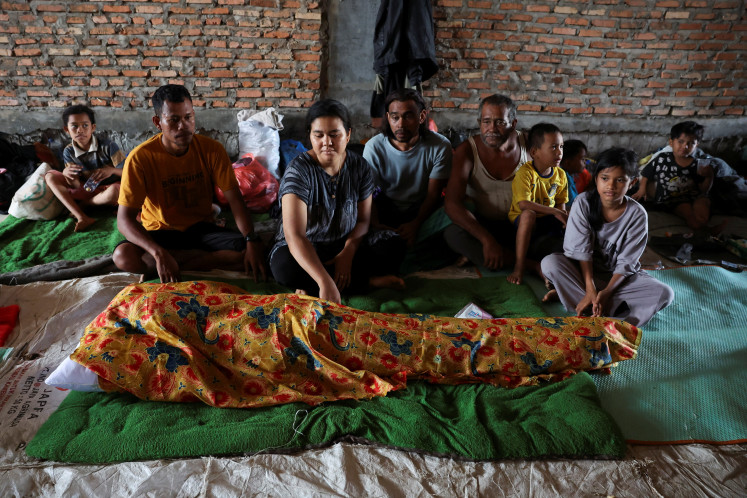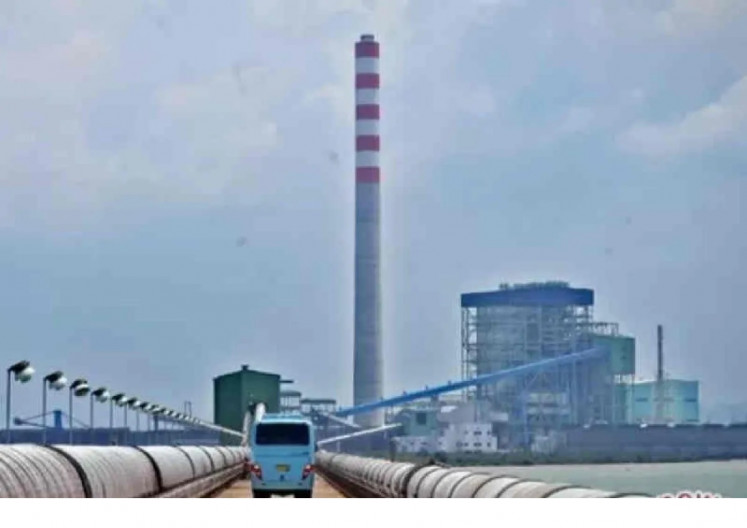Popular Reads
Top Results
Can't find what you're looking for?
View all search resultsPopular Reads
Top Results
Can't find what you're looking for?
View all search resultsIndonesia faces trade remedies from partners, risks $1.9b losses
The country is currently facing 10 antidumping and six safeguard investigations that involve main trading partners.
Change text size
Gift Premium Articles
to Anyone
I
ndonesia has been hit by trade remedies involving nine trading partners that launched an investigation into alleged unfair practices by the country, resulting in potential foreign exchange losses of up to Rp 26.5 trillion (US$1.9 billion), according to the Trade Ministry.
The World Trade Organization defines trade remedies as “trade defense measures against imports to protect their domestic industries from unfair practices such as dumping and subsidies, or to cope with a sudden surge of foreign goods”.
The three tools accepted by the WTO are antidumping, countervailing and safeguard measures.
Indonesia is currently facing 10 antidumping and six safeguard investigations that involve main trading partners like India and the United States, as well as the European Union, Vietnam, Australia and the Philippines.
“It’s quite a big loss and we also need to find a source of foreign exchange earnings for our country,” the Trade Ministry’s acting director general of foreign trade, Srie Agustina, said in a virtual discussion on Monday.
The investigations came after Indonesia’s trade balance had swung back to a trade deficit of $350 million in April on the back of falling commodity prices and plummeting global demand amid the COVID-19 pandemic, according to Statistics Indonesia (BPS).
India, the fifth-largest trade partner for Indonesia’s non-oil and gas exports, accused the latter of unfair trade practices on five products, including polyester fiber, a key material in making clothes.
Meanwhile, the United States, the second-largest destination for Indonesia’s non-oil and gas exports, complained about Indonesian trade practices on the threaded bolts, bed mattresses and aluminum sheets.
Their complaints also came as Indonesia’s foreign exchange (forex) reserves rose to US$130.5 billion, an increase of $2.6 billion from April, Bank Indonesia (BI) announced on Monday.
The WTO projected a decline of between 13 percent and 32 percent in the volume of international trade this year as a result of the pandemic and subsequent trade disruptions.
In Indonesia, exports fell by 7.02 percent year-on-year (yoy) to $12.19 billion in April, the sharpest fall in eight months.
Indonesia played a part in weighing down global trade since its safeguard actions between 2004 and 2019 were second only to India, according to data from the Geneva-based trade body.
Mardjoko, the chairman of Indonesian Trade Safeguard Committee (KPPI), said on Monday that his office also received between January and May safeguard investigation requests by local players for seven products, namely carpets, tarps, cigarette paper, flat glass, solar panels, garments and kitchen and eating utensils.
The domestic industries wanted the government to protect them against increasing imports. Imports of solar panels, for example, rose by 50 percent, mostly from China.
“Amid this pandemic, it appears that there will be more investigations this year,” Mardjoko said in the same discussion. “Safeguard investigations picked up quite significantly since the trade war between the United States and China.”
Indonesia’s overall imports fell by 18.58 percent to $12.54 billion in April from a year earlier.
Padnyawati, the director of trade safeguarding at the ministry, said Monday that negotiating a deal to eliminate restrictive trade policies against Indonesian products required “a good orchestrated effort”.
“At home, we involve the Indonesian Antidumping Committee [KADI], the Trade Safeguard Committee, law consultants, business associations and ministries. Abroad, we work with embassies and trade attaches.”










